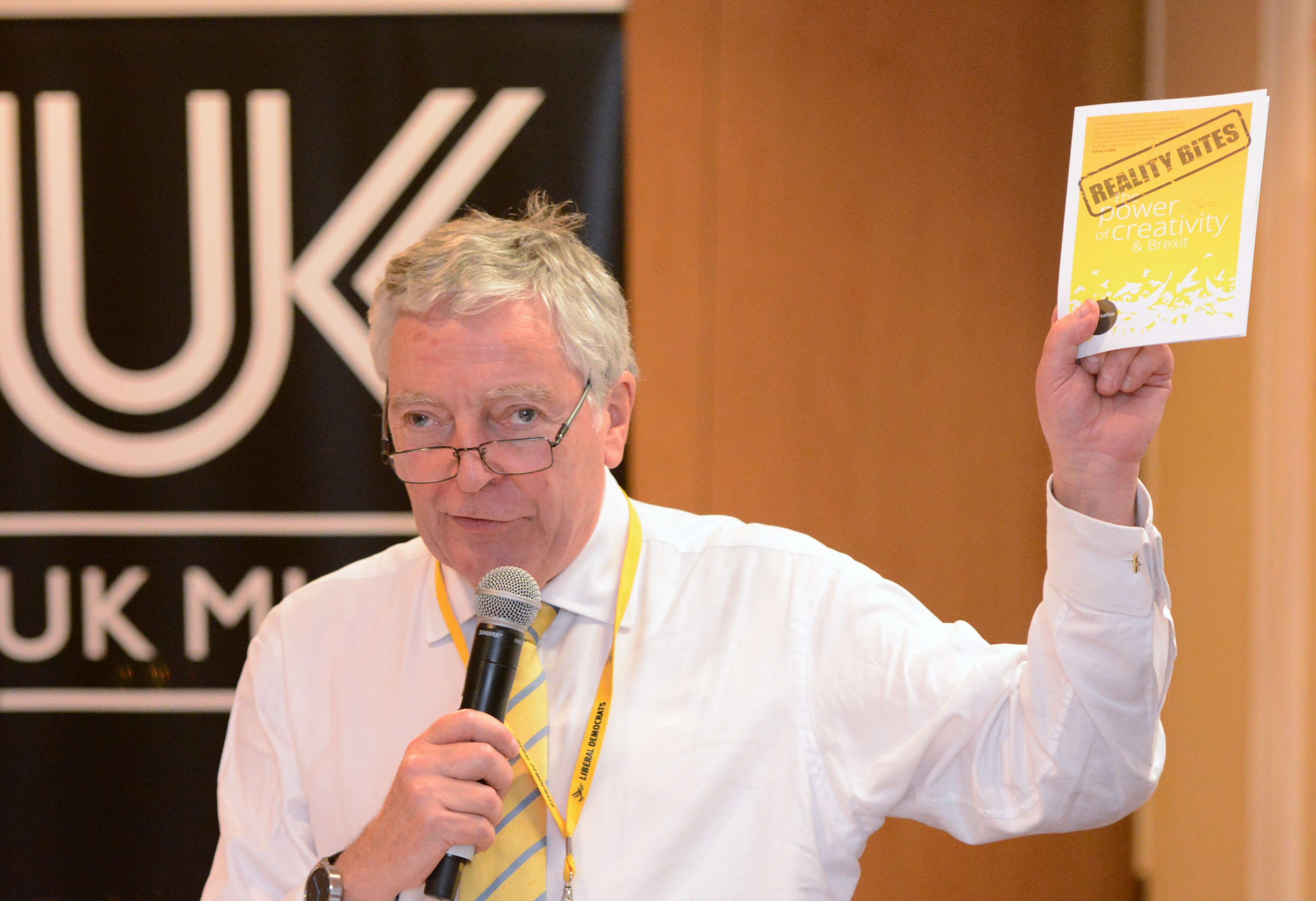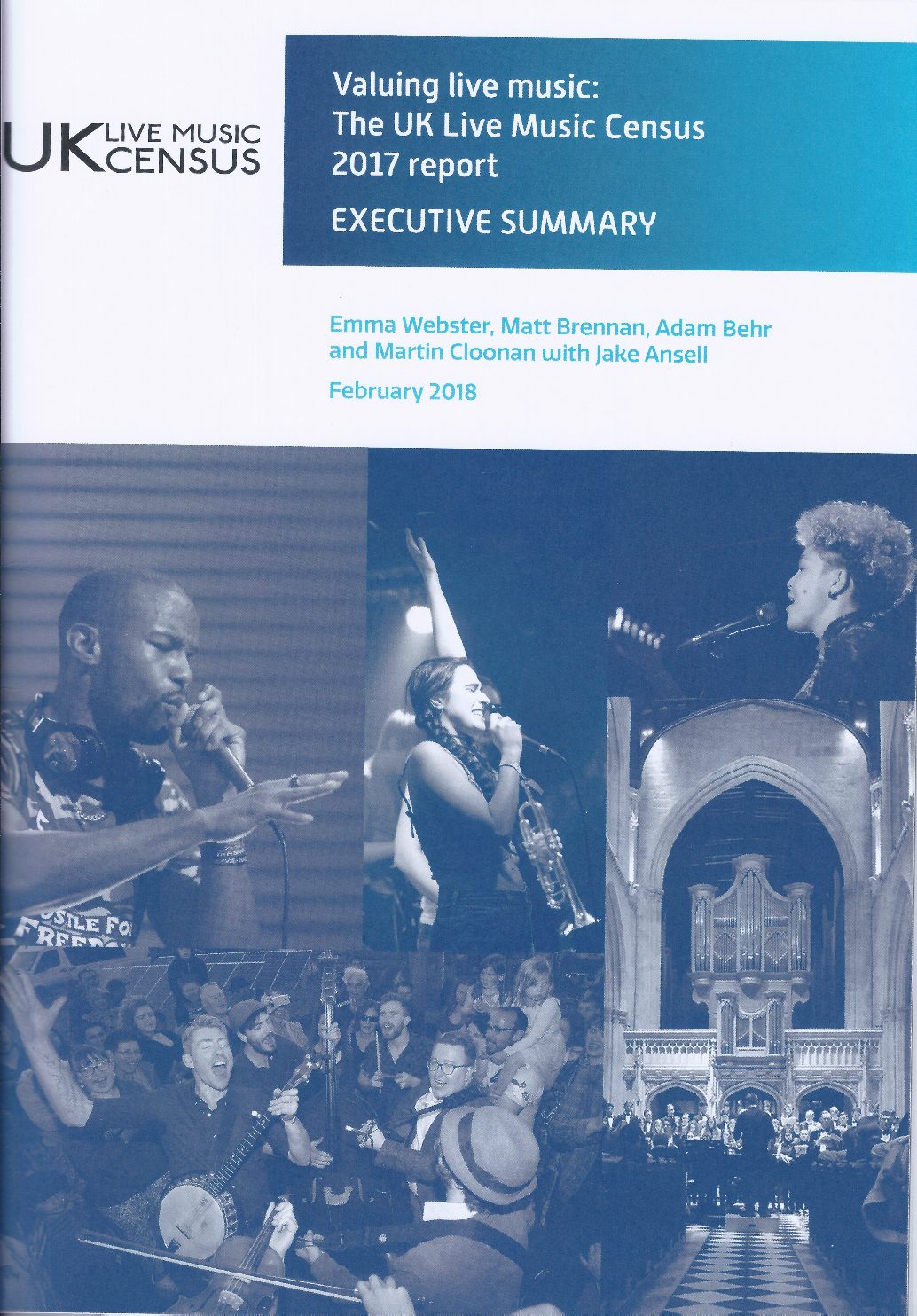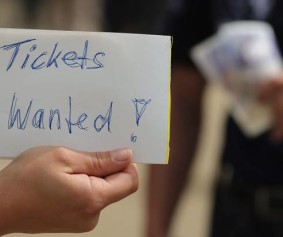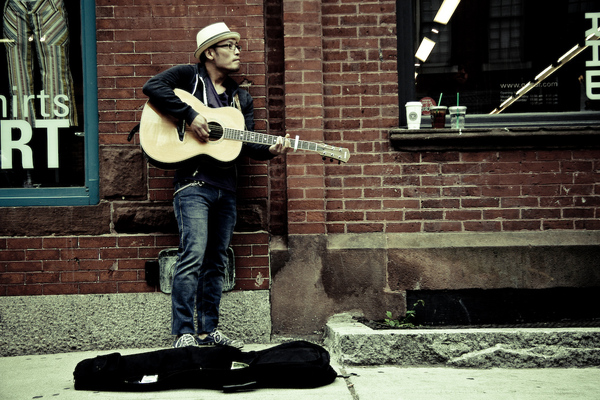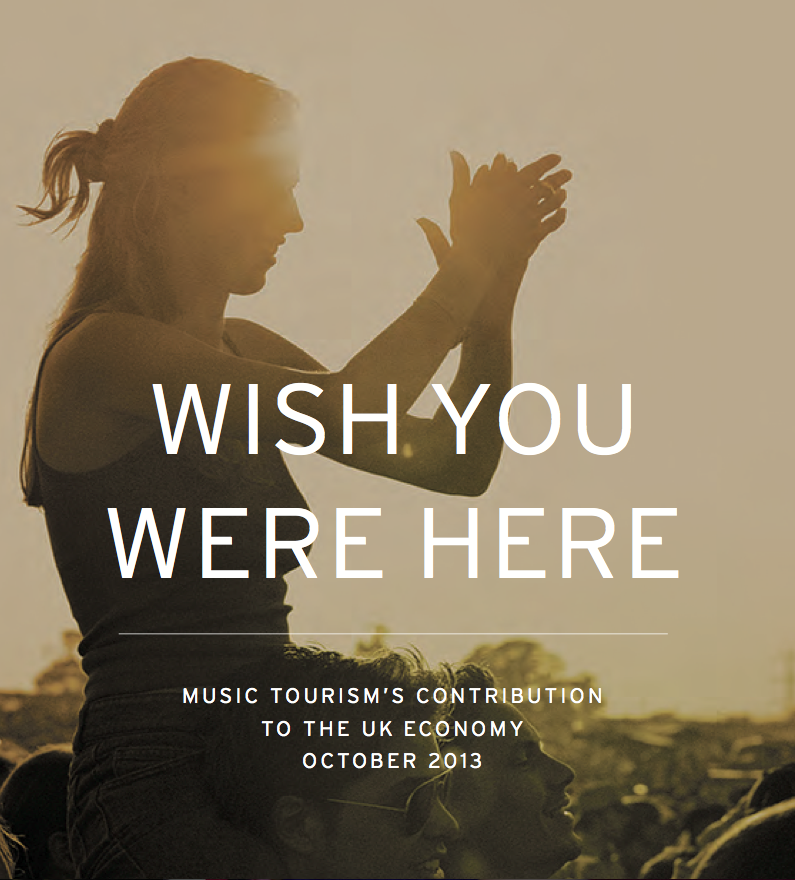UK Music Host Expert Panel on the Talent Pipeline at Lib Dem Conference
The panel, which was chaired by UK Music CEO Michael Dugher, took place at the Metropole Hotel on Monday lunchtime. Read more
Lord C-J helps launch the 2017 Live Music Census Report
I recently helped to launch the excellent Report on the 2017 Live Music Census carried out by Emma Webster Mat Brennan, Adam Behr, Martin Cloonan and Jake Ansell at the Musicians union HQ in Clapham Road. I was asked to give an overview of Parliamentary progress in supporting grassroots music venues. This is what I said:
First of all many congratulations to Emma , Matt, Adam, Martin and Jake for a really impressive high quality report. In this company I can say they make a virtuoso quintet!
It will really underpin and validate the case that so many of us are making inside and outside Parliament about the importance of live music and the closures and potential threats to grassroots music venues, which are such an important part of our music scene both for audiences and musicians.
Just a couple of weeks ago, many of you will remember, there was a very impressive turnout by peers and MP’s in support of John Spellar’s Agent of Change Bill outside Parliament .
The sheer support for the Bill and the far greater interest by Parliamentarians in the welfare of Grassroots Music Venues will be reinforced by the research carried out by the authors of this UK Live Music Census but is also testimony to the concerted activities over the past few years of campaigners such as UK Music, the Music Venues Trust and the MU and many in this room. We are now creating a much bigger campaigning community for music in Parliament.
Parliamentarians are now much more alive to the fact-as shown in today’s report-that there has been in recent years a perfect storm of circumstances for the night-time economy, resulting in a continuing decline in grassroots live music venue and they realize that once gone, these venues will not come back into our towns and cities.
The report itself highlights rising rents and business rates, planning and property development issues, and noise related complaints as the key contributing factors.
There have however been some individual bright spots as result of these issues being raised by campaigners. The campaign for Agent of Change is a case in point.
As a result of a campaign in a previous Housing and Planning bill, Agent of Change principles were made to expressly cover conversions but did not cover new build.
After the introduction of John Spellar’s new Bill which expressly provides for this, Sajid Javid has agreed to include the principle “in detail” in the National Planning policy Framework which will make housing developers building new homes near UK venues responsible for addressing noise issues and this should help protect venues from any new build development in their nearby vicinity.
Also there seems to be some daylight on business rates reform in terms of an indexation switch to CPI, . A discount for pubs is welcome but relief needs to be extended explicitly to grass roots venues as a whole. The London Mayor’s Economic Development strategy recognizes the issue for the London’s night time economy and is pressing the Valuation Office Agency to review its valuation policy, which would be a step in the right direction. But all this needs to happen quickly and it needs to be nationwide.
"We are now creating a much bigger campaigning community for music in Parliament."
— Lord Clement-Jones
Then there is the whole question of secondary ticketing.
In the last couple of years the campaign to stop the rip off against fans by the All Party Parliamentary Ticketing Abuse Group, groups like FanFair Alliance, trade bodies like UK Music and the MMA has by and large achieved a great deal. First of all amendments to the information requirements on ticket resellers through the Consumer Rights Act and then last year in the Digital Economy Act with the outlawing of bots buying up tickets on an industrial basis.
New guidance under the Consumer Rights Act makes it absolutely clear what information must be provided by secondary sellers and provide better protection for audiences, artists and event organisers.
The next step was to make sure that these laws are being obeyed. Having looked at this as a result of debates on the Consumer Rights Bill, the CMA last November reported that it is now taking enforcement action against some of the offending Secondary sellers, and enquiring further into their practices.
At the end of the day however, welcome though all these developments, there is more to be done. And urgently too. Venues are still closing. We need a comprehensive approach to the protection of these venues. That is why I welcome the new enquiry into Live Music being undertaken by the DCMS Select Committee
Specifically as part of that they will be asking : “How the music sector been affected by the closures of small music venues across the country,? Should small music venues be classified as cultural venues? What initiatives can be put in place to help grassroots artists and bands?”
This report will be hugely helpful in setting the scene for the Select Committee.
We need to look at ideas such as a Culture & Heritage Investment Tax relief as Music Venue Trust suggest in their evidence and imaginative schemes such as their Sound+Vision plan.
I hope UK Music will return to the idea of an amendment to the Licensing Act which would create a fifth licensing objective that would oblige licensing authorities to consider the wider benefits of music and entertainment in the community when carrying out their functions. As is stands, the cultural contribution of a grassroots music venue is not considered at all.
Having this fifth objective might just be the critical edge to a decision that will either lead to a venue closing or to it remaining open.
I don’t often quote Ed Vaizey but I thoroughly agree with what he said 2 years ago at Venues Day: “ A vibrant music venue which is breaking new acts has just as much right to be considered a cultural venue as a local or regional theatre”
So we need to make sure that Arts Council England treats Grassroots music -as they do on the continent- as an essential part of our cultural scene. It seems completely weird that the British Council do when our artists tour foreign venues but the Arts Council don’t recognize this.
We mustn’t build our expectations too much but the Select Committee has a good track record and it could produce an important platform for a new set of campaigns.
Enough from me . I was only meant to do a few riffs, so I’d better get off the stage!
Government Agrees with Peers to Put Fans First
Earlier this year the Coalition Government agreed a compromise on the Consumer Rights Bill with proponents of transparency measures to prevent ticket fraud and by secondary ticket sellers.
As a signatory to the original amendment and a member of the All-Party Group on Ticket Abuse I paid tribute to Lord Moynihan, Sharon Hodgson MP, Mike Weatherley MP and Lady Heyhoe Flint for their roles in the campaign and their for their efforts in securing this agreement, which will benefit music and sports fans immensely.
Here is what I said:
http://www.publications.parliament.uk/pa/ld201415/ldhansrd/text/150224-0001.htm#15022465000505
We are now waiting for the new Conservative Government to set up the review of the law governing Secondary Ticketing as promised in the last Parliament and enshrined in the Consumer Rights Bill. I asked a question in the Lords about this recently and this is the reply I received
To ask Her Majesty’s Government when they intend to commence the review of the consumer protection measures for the secondary ticketing market under section 94 of the Consumer Rights Act 2015; and who will undertake it.
The Parliamentary Under-Secretary of State, Departments for Business, Innovation and Skills and for Culture, Media and Sport (Baroness Neville-Rolfe) (Con): My Lords, work on appointing the chair and expert group is well advanced and the review will proceed once this and the terms of reference are finalised. We are aware of our statutory obligation to publish a report on its findings by 26 May 2016.
Lord Clement-Jones (LD): My Lords, I thank the Minister for that reply but ticket fraud continues to soar this summer. Circle Tickets has defrauded hundreds of music fans just this June while the RFU reports zero compliance with the Act for World Cup tickets, so the problem remains acute. This review is enshrined in statute as a result of the efforts of the noble Lord, Lord Moynihan, and others only recently. We are now two months out from the general election. When will this review start, will BIS or the DCMS oversee it and what will its scope be?
Baroness Neville-Rolfe: My Lords, as I have said, we will publish details of the review shortly. I share the noble Lord’s disappointment on the enforcement side and, prompted by his Question, I spoke to the City of London Police only last week. I was reassured about some of the actions it is taking, both on its own and with the cultural and sporting bodies, for the important events of this summer. As the noble Lord
Here is the original piece I wrote after the vote in the Lords in November
The House of Lords has handed a big boost to music, sport and comedy fans as a cross-party coalition of Peers yesterday passed an amendment to curb the actions of ticket touts.
In a defeat for the Government, Peers forced through a new clause to the Consumer Rights Bill to increase transparency in the ticket resale market.
The new provisions, passed by 183 votes to 171, will mean that touts selling their tickets through major internet platforms like Seatwave and Viagogo will have to prominently disclose key facts to potential customers, including:
- Their identity, particularly where they are selling tickets as a business;
- The original face value of the tickets being sold;
- The individual characteristics of the tickets being sold, such as the seat number or the booking reference, and;
- Whether the terms and conditions on the ticket mean that it can be cancelled if the organisers find out it has been resold.
It is hoped that the information being made public will enable event holders to identify the largest ticket touts and prevent them from buying up large quantities of tickets to re-sell, leaving ordinary fans with no choice but to pay inflated amounts on the secondary market.
The latest high-profile tour to be affected is that of Fleetwood Mac, with thousands of tickets being resold on the secondary market at way above face value within minutes of the tour selling out. Similarly, next year’s Rugby World Cup has been plagued by touts reselling tickets to England games.
The amendment follows a similar attempt in the Commons earlier in the year. Both amendments were informed by a report from the All-Party Parliamentary Group on Ticket Abuse, which held an inquiry at the beginning of the year into the secondary ticketing market.
Liberal Democrat Peer and signatory to the New Clause, Lord Tim Clement-Jones, said: “This is a victory both for the ticket-buying public and for the hugely important live event industry. The Police and the entertainment industry have been clear that action needs to be taken on ticket touts to ensure that genuine fans can get access to gigs, shows and games without having to pay extortionate prices, and these new measures would do exactly that.”
Labour Co-Chair of the All-Party Parliamentary Group on Ticket Abuse, Sharon Hodgson MP, said: “Ticket touts have operated with impunity for far too long. In no other market would we put up with not knowing who we were buying from or whether they even had permission to sell us a product. This amendment is a significant step towards tackling the scourge of touts and putting fans first, and I hope that the Government now listens to the will of Parliament.”
Conservative Co-Chair of the All-Party Parliamentary Group on Ticket Abuse, Mike Weatherley MP, said: “It’s been clear for a long time that this market is not working in the interest of genuine fans or the people who put in all the hard work and investment to put on live events. Anyone operating honestly has nothing to fear from these changes, but they will make a big difference for ordinary fans. It’s imperative that the Government doesn’t try to reverse this amendment when the Bill comes back to the Commons.”
See the Report in the Evening Standard
Busking under threat in Camden
See the campaigns section and add your voice to those who want to reverse their perverse decision to insist on a licence from all buskers!
UK Music launches excellent new report on Music Tourism
UK Music have published an excellent report on Music tourism: Wish you Were Here
This follows their groundbreaking last report in 2011, Destination: Music—the Contribution of Music Festivals & Major Concerts to Tourism in the Uk
The main messages are:
We’ve uncovered a hidden gem. Music tourism has never been properly studied before.
Groundbreaking research. Unprecedented access to data – to give us the most comprehensive picture ever of live music and tourism.
Significance of music tourism to economy reaching highest levels – from Prime Minister to House of Lords debate to new partnerships with tourism authorities.
They are calling for an overarching music tourism strategy to maximise potential.
The Main Statistics are:
- UK Music counted 6.5 million music tourists in 2012.
- On average, 41% of the population at live music events is comprised of music tourists.
- Music tourism is generating £2.2 billion in spending overall.
- £1.3 billion of that is spent directly by music tourists themselves,
- Their presence stimulates a further £914 million in spending further down the supply chain.
- Music tourism is sustaining 24,251 jobs overall.
- 16,135 of those jobs exist as a direct result of music tourism
- a further 8,115 jobs were created further down the supply chain as a result of music tourism
- These are “full-time equivalent” jobs – so if there are two part-time jobs of 20 hours a week, or 4 seasonal jobs each lasting 3 months, we count them as one FT job.
- Music tourism contributes nearly a billion pounds (£934 million) to the nation’s wealth as measured by GDP
- 544 million as a direct result of music tourism
- A further £390 million as a result of economic activity further down the supply chain.
- Overseas music tourists comprised just 6% of the total music tourism population, but they accounted for 20% of total spending by music tourists. They’re like gold dust. Per capita, they each spend nearly a grand (£910) in the UK when they come here to attend music festivals, and nearly £400 (£396) when here to attend a gig. This includes spending at the live music event itself as well as what they spend over the course of their stay in the UK.
This is a great Report. It identifies the opportunities extremely well .
What we now need, as I said in Lord Storey’s debate in June, is for the Government to team up with VisitBritain,the Arts Council, the British Council the music industry, the tourism and hospitality industries and others to identify the “real levers and barriers” to growing music tourism at national level, in many cases red tape and do the necessary. We need a properly joined-up strategy, particularly in terms of reducing regulation

